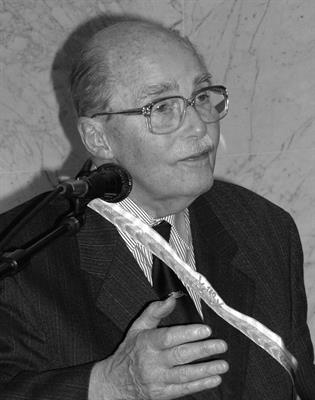Dr. Otto von Habsburg-Lothringen

Personalia
Born:
Died:
Profession:
Persecution:
Resistance fighter
Memberships
Curriculum Vitae
Otto von Habsburg-Lothringen was born the eldest son of the last Emperor of Austria, Charles I. After the downfall and destruction of the monarchy, he was driven into exile with his parents. His father died there in 1922, far from home. Otto was also not allowed to enter Austria during the interwar period, but continued to campaign for his homeland and fought against National Socialism from the outset and wherever he could.
After Hitler's invasion of Austria, which the German Wehrmacht planned under the cover name "Fall Otto", Otto published articles in a number of international newspapers, including the "New York Times", protesting against the violent occupation of Austria. In the now annexed Austria, the Nazis begin a special wave of arrests and persecution of monarchists. Otto himself was wanted for arrest and sentenced in absentia as a traitor to the country on 22 April 1938.
Otto then went to Paris to organize resistance against Nazi Germany from there and gather exiled Austrians around him. At the beginning of 1940, he traveled to the USA, where he met twice with President Franklin D. Roosevelt and other politicians. Roosevelt and other politicians and was also able to address the American Congress, where he emphasized that Austria was not an enemy country, but one that had been occupied by force. He returned to Belgium at the beginning of May 1940. However, on May 10, the imperial family is forced to leave the country in haste due to the start of the French campaign and the German attack. They first went to the south of France, where they stayed until France's capitulation on June 10. She then flees to Spain.
From there, Otto travels to the USA in June 1940, where he obtains visas for the rest of the family, who then follow in the course of July and August. Otto subsequently lives in New York and Washington, while Empress Zita moves to Quebec in Canada with the younger children. With Roosevelt's support, Otto tries in vain to establish a kind of Austrian government in exile, but this fails due to the resistance of exiled Social Democrats, including Julius Deutsch. During the conference in Quebec in August 1943, Otto was able to meet the British Prime Minister Winston Churchill to promote the cause of a free and independent Austria.
At the beginning of 1945, some of Otto's brothers were already in Europe. After the liberation of Tyrol at the beginning of May, he and his brothers were warmly welcomed in Innsbruck and were able to remain in the French zone (North Tyrol, Vorarlberg) for the time being. Attempts to found a monarchist party were forbidden by the Soviet High Commissioner, as were efforts to hold a referendum to decide on the form of government. At the beginning of 1946, Otto and his brothers were expelled from the country by the new federal government under Federal Chancellor Leopold Figl after the Habsburg Laws of April 1919 were reinstated. The then Foreign Minister Karl Gruber traveled to Tyrol to persuade Otto to leave his homeland.
After a restoration of the monarchy after 1945 was almost hopeless, Otto turned his attention to promoting the European idea and became involved in the Pan-European Union, of which he had been a member since 1936. He was its president from 1973 to 2004 and then honorary president until his death. After living first in France and then in Spain after the war, he moved his permanent residence to Pöcking on Lake Starnberg in Bavaria in 1954. This led to contacts with the CSU, and in 1978 Otto was also granted German citizenship.
Places
Residence:
Multimedia
Citations
Biolex des ÖCV unter www.oecv.at/biolex
